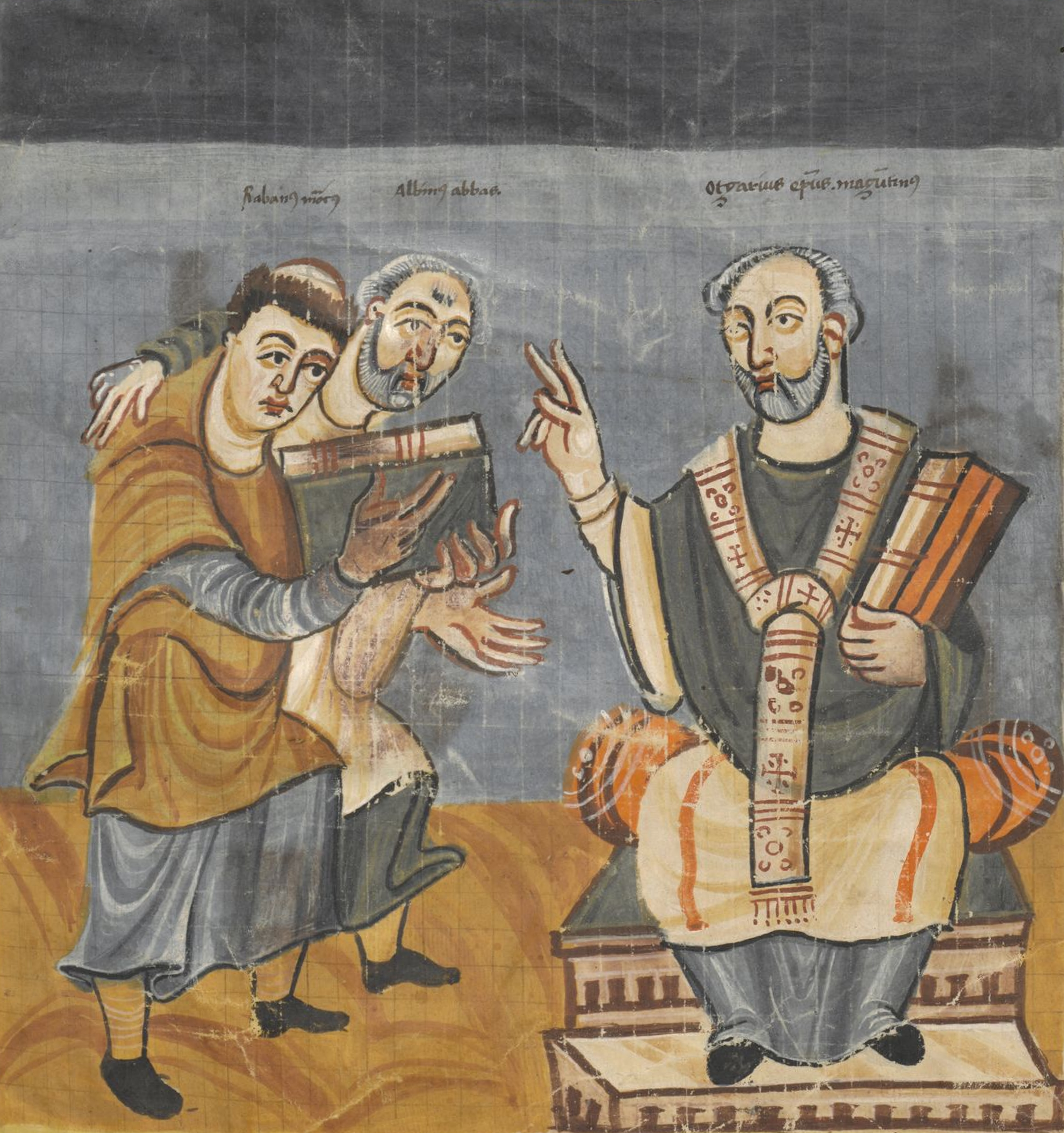
Alcuin
Alcuin of York (/ˈælkwɪn/;[1] Latin: Flaccus Albinus Alcuinus; c. 735 – 19 May 804) – also called Ealhwine, Alhwin, or Alchoin – was a scholar, clergyman, poet, and teacher from York, Northumbria. He was born around 735 and became the student of Archbishop Ecgbert at York. At the invitation of Charlemagne, he became a leading scholar and teacher at the Carolingian court, where he remained a figure in the 780s and 790s. Before that, he was also a court chancellor in Aachen. "The most learned man anywhere to be found", according to Einhard's Life of Charlemagne[2] (c. 817–833), he is considered among the most important intellectual architects of the Carolingian Renaissance. Among his pupils were many of the dominant intellectuals of the Carolingian era.
This article is about the scholar Alcuin of York. For other uses, see Alcuin (disambiguation).
Alcuin of York
c. 735
Deacon of the Catholic Church
Alcuin wrote many theological and dogmatic treatises, as well as a few grammatical works and a number of poems. In 796, he was made abbot of Marmoutier Abbey, in Tours, where he worked on perfecting the Carolingian minuscule script. He remained there until his death.
Alcuin of York
20 May
Legacy[edit]
Alcuin is honored in the Church of England and in the Episcopal Church on 20 May the first available day after the day of his death (as Dunstan is celebrated on 19 May).[41][42]
Alcuin is also venerated as a Saint by Eastern Orthodox Christians in the British Isles and Ireland. The Orthodox Fellowship of St John the Baptist publishes a liturgical calendar that is widely used in that region, and this calendar includes a feast for St. Alcuin.[43]
Alcuin College, one of the colleges of the University of York, is named after him.[44] In January 2020, Alcuin was the subject of the BBC Radio 4 programme In Our Time.[45]